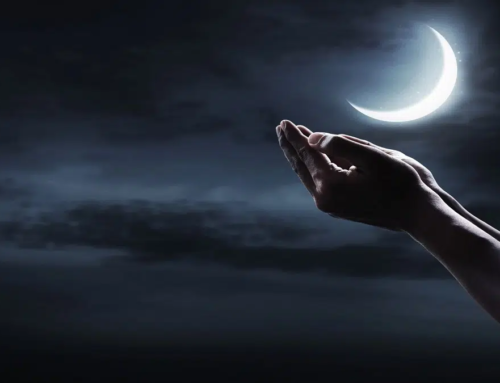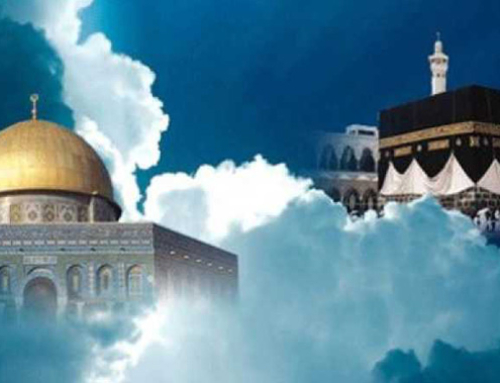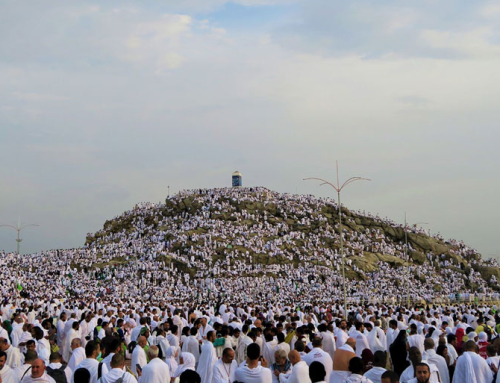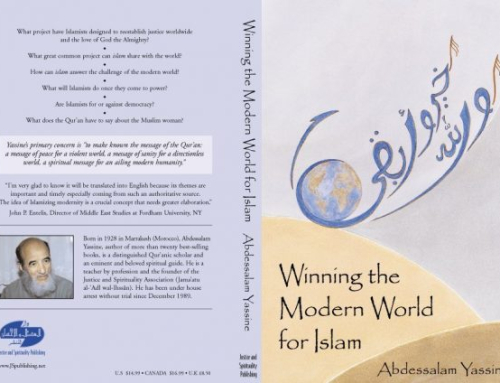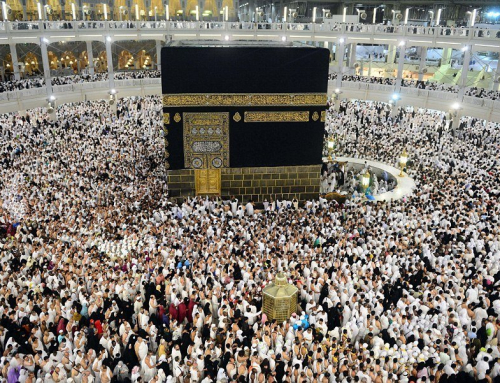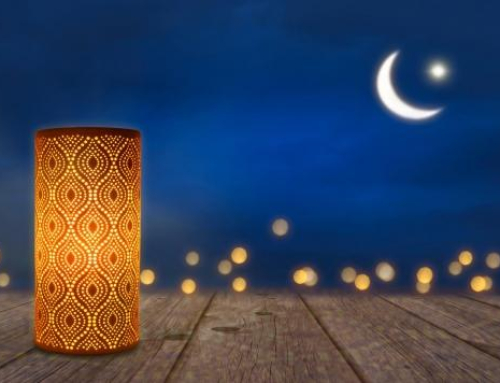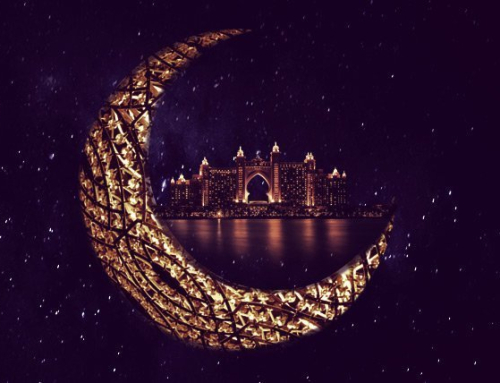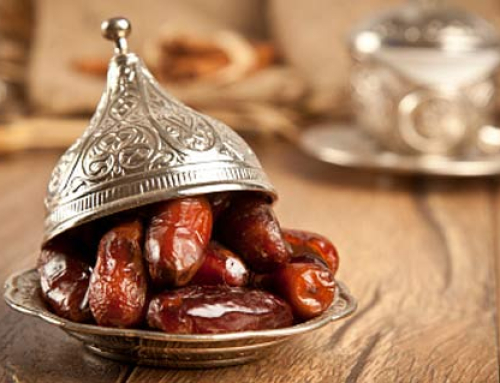Mounir Birouk
December 4, 2017
In the third month of the Islamic calender (Rabi` the First) Muslims communities commemorate- each in its own way- the birth of the prophet (peace and blessings of God be upon him). Somewhat unfortunately, these these celebrations time and again come along with debates about the religious legitimacy of the commemoration of the birth of the prophet. While I believe that engaging in these debates might spoil the joyous and celebratory moods which are experienced in such an occasion, I do also think that they stand as a good opportunity for the advocates of the celebrations of the “mawlid” to substantiate this position and to dispel certain misconceptions.
The main contention of the opponents of the celebration of the mawlid is that the latter has no origin in the Qur’an and the tradition of the prophet, and it has no precedence in the legacy of the early righteous predecessors of the Ummah. Accordingly, they rule it as a bad innovation, and they accuse the celebrators of misguidedly inventing things which are not in religion. Needless to say that in their eyes the celebrators of the birth of the prophet are outright sinner!
In this article, I adduce six reasons which justify the celebration of the birth of the master of all creatures, and I conclude with a note on how these celebrations can be meaningful and fruitful. I will be brief; so the reader can consult other sources for more details.
Not everything which the prophet did not do is forbidden
This is an established rule in the Islamic jurisprudence. The prophet (peace and blessings of God be upon him) was reported to have said: “Avoid that which I forbade you, and take/do whatever you could from that which I ordered you.” Muslim scholars deduced from this hadīth that the things which were neither forbidden nor set as obligations by the prophet (peace and blessings of God be upon him) fall within the circle of the permissible unless they include or lead to anything which is forbidden. This rule straightforwardly applies to the celebration of the birth of the prophet. The fact that the prophet nor his close companions did not do it is not evidence of its illegitimacy. If things which the prophet did not talk about nor did are forbidden, life will be unbearably hard and religion will cease to become a mercy for people. One can easily see how flawed is this logic!
Not all innovations are bad
Innovations are not always bad and undesirable. Common sense alone tells us that there are good innovation as there are bad ones. When it comes to religion, we have several instances of practices which were approved by the companions of the prophet and scholars of Islam after the death of the prophet. Two salient examples are the special Ramadan prayers “taraweeh” and the beginning of the Islamic history with the event of the immigration of the prophet; both of which were established by the prophet’s closer companion Umar Ibn al-khattab may God be pleased with him. Another important event is the collection of the Qur’an by the third Caliph Uthman Ibn Affan may God be pleased him. The Messenger of God (peace and blessings of God be upon him) said: “Whoever starts a good thing and it is followed by others, will have his own reward and a reward equal to that of those who follow him, without it detracting from their reward in any way.” The commemoration of the birth of the seal of the prophets is definitely a good and desirable innovation.
The commemoration of mawlid is not meant as an act of worship
Muslims who celebrate the mawlid do not take as an act of worship. Yet, the opponents of these celebrations often throw in their face the idea that God can only be worshiped by what He revealed in the Qur’an and by what His prophet said, did or approved. In Islamic jurisprudence, the ruling of worship [ahkam al-Ibadat] are “twqifi”, that is, they should be based on or deduced from the text. But who says that these celebrations are acts of worship? The mawlid is a wholesome custom and habit which falls within the ambit of the permissible. It is as its very name indicates: a celebration!
The prophet celebrated his birthday
The Qur’an informs us that the days in which prophets were born were by no means ordinary days. Speaking about Jesus peace be upon him, God the Almighty says: (And peace be upon him the day he was born and the day he dies and the day he is raised alive) [19:15]. Similarly, the birth of the prophet in itself was not an ordinary event. When the prophet came into being, a light came out of his mother A’mina bint Wahb and “lit that which lies between the East and West.” When the prophet may God grant him peace was asked about the fasting of Monday, he replied: “That was the day when I was born, and the day in which I received the Revelation.” So, the first person who celebrated the prophet’s birthday was the prophet himself!
Mawlid has been celebrated by the vast majority of Muslims for centuries
For centuries, the birth of the prophet has been celebrated by the vast majority of Muslims. How odd that very few Muslims today judge this long-standing tradition as an aberration. But the odd always stays odd, and the exceptional never enjoys the status of the established rule. Opponents of the mawlid celebrations would retort that the legitimacy of a practice is not gauged by the number of the people who embrace it. Sure! But behind the sweeping majority of Muslims who kept celebrating the birth of the prophet throughout generations stood countless scholars, judges and jurists who approved, encouraged and even participated in the mawlid festivities? Suffice it to say that scholars in the caliber of Ibn Hajar al-Asqalani (d. 852 AH), Jalāl al-Dīn al-Suyūṭī (d. 911 AH), and Shamsudeen as-Sakhawi (d. 902 AH) praised these celebrations.
Mawlid is a means of innovating the love of the prophet in the hearts
In the first three or four centuries, Muslims were more or less still close to the prophetic spring. The companions of the prophet and their followers were faithful bearers of the prophetic torch. The scholars who accompanied them disseminated through their teachings and behavior the seeds of the veneration of the prophet and kept the glow of his love alight in the hearts. As Muslims get temporally farther from the prophetic source, Muslims found in these celebrations a means for remembrance and re-bonding of the community. The mawlid serves as a reminder through which love and gratitude for the man who transposed us from darkness into light are rekindled in the hearts. To be sure, the steadfast love of prophet and emulation of his deeds and actions should be a state of the heart all through the days of the year, but the human soul (nafs) often needs concentrated and appealing doses of that love to be shaken up from its slumber, forgetfulness and sheer habit. Does not God the Almighty say: (and remind them of the days of God) [14:5]?
How to celebrate the birth of the prophetic
Needless to say that the celebration which we are talking about are those which do not breach the established rulings of Islam. To serve the purposes for which it is undertaken, the celebration of the mawlid has to conform to the edicts, morals and the general spirit of Islam. Unfortunately, some popular celebrations of the mawlid slide into vices, and the opponents of the commemoration of the birth of the prophet often quite selectively point to them. When the glow of the love of the prophet dies out in the hearts, celebrations become habits and imitative customs than conscious acts of love and recognition. The commemoration of the birth of our master and intercessor Mohammed (peace and blessings of God be upon him) can be through getting-together and discussing his biography, chanting songs which describe his lofty character and noble attributes, by composing and reading poems, by screening films about his life and tradition, by organizing wide-scale cultural events about this occasion, and by countless other good means. Together with collective food servings, the joyous and festive mood of these celebrations cements the bonds of compassion and love among the hearts, and leave unforgettable imprints on the memories of children.
“Indeed God and His angels bless the Prophet; O you who have faith! Invoke blessings on him and invoke Peace upon him in a worthy manner.” [33:56]. O God, bless our master Muhammad and the people of Muhammad as you have blessed Abraham and the people of Abraham. Surely you are the Praiseworthy, the Glorious. O God, be gracious unto our master Muhammad and the people of Muhammad as you were gracious unto Abraham and the people of Abraham. Surely you are the Praiseworthy, the Glorious.



